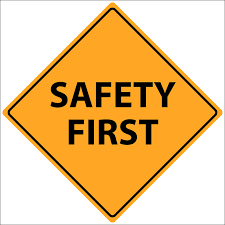There are several safety procedures a business owner can implement into their business without setting up an official safety program. Official safety programs frequently cost a large amount of additional money. As a workers’ compensation professional one common reason for increasing workers comp premiums is bad management or lack of safety procedures causing unnecessary claims. In a society where it’s becoming increasingly difficult to prove a claim to be fraudulent, it’s more important than ever to prevent unnecessary claims from occurring in the first place. When a business has suffered a claim or several claims in the past (frequency or severity), those claims will follow a businesses workers comp experience rating for several years to follow. This factor is referred to as a businesses work comp experience modification rating.

Frequent safety meetings are needed to keep this experience modification rating down. Monday morning meetings are typically the easiest for a business owner and they get the employees on the right track for the upcoming week. Actually a large portion of fraudulent claims occur on Monday? Here are a few things many successful businesses require of their employees.
- Talk with your employees about proper lifting procedures
- Ensure all employees have proper safety gear
- Purchase and require employees to wear basic safety gear
- Talk with employees about how to handle tools within the trade properly
As far as the weekly meetings go, if you have trouble coming up with topics to discuss simply ask your employees. They may be able to contribute topics based on their day to day job duties. They can help you analyze what areas they think will cause claims and how the organization can minimize the exposure. These meetings can be short, but they do need to be documented. Your employees need to start the work week off on the correct foot. This can also show you care as a business owner about the safety of your employees.
Business owners being active in the day to day operations are important to the success of any safety program. Being present on the job-site and communicating with the employees help the owners to understand what the employees actually do on a day to day. Being active int he day-to-day operations helps to quickly identify when an employee is doing something that increases their chances of being injured. Being an active owner typically results in the employees paying closer attention to doing the job the right way instead of cutting corners.
Identifying reasons for prior claims and correcting those problems going forward can also help your business control the experience modification rating. If your a business that suffered claims in the past, use the insurance carriers loss report to identify all claims (believe it or not some business owners are not aware a claim even occurred.) Think about and discuss with your staff ways that particular injury could be prevented from happening in the future.
Appoint someone on your crew or within each department as the leader or foreman. Have those key employees assist in the monitoring of the safety program within the workplace. Have those key employees assist with safety meetings, but hold them accountable for their responsibilities. Reward them when they make a difference.
Another good tactic to promote safety is to put up a sign within the workplace in a highly visible area. Remind employees daily that the job place is X days injury free. Give the employees an incentive to reach a certain number of days with no job place injuries. These little things make the employees think about being safe and make a difference.






 Lifting exposures: Generally, are your employees lifting over 50lbs on their own? If so, find a different alternative to lifting like a dolly or something to assist in the lift. That can also be a mechanical hoist or a 2 wheeler to move heavy items. It could also be requiring team lifting for objects over a certain weight. All of these strategies can limit this risk for your business.
Lifting exposures: Generally, are your employees lifting over 50lbs on their own? If so, find a different alternative to lifting like a dolly or something to assist in the lift. That can also be a mechanical hoist or a 2 wheeler to move heavy items. It could also be requiring team lifting for objects over a certain weight. All of these strategies can limit this risk for your business. 
 The biggest reason you will see a debit added is due to your businesses claims history. Some companies are better at managing injury and promoting safety. For example, companies with safety programs, return to work programs, and prompt reporting of claims generally have less claims than a company that never focuses on how to keep a safe environment for workers. Having these programs in place can help you obtain credits, which we will discuss shortly. Simply put the more claims you have the more you are going to pay in work comp premium.
The biggest reason you will see a debit added is due to your businesses claims history. Some companies are better at managing injury and promoting safety. For example, companies with safety programs, return to work programs, and prompt reporting of claims generally have less claims than a company that never focuses on how to keep a safe environment for workers. Having these programs in place can help you obtain credits, which we will discuss shortly. Simply put the more claims you have the more you are going to pay in work comp premium.